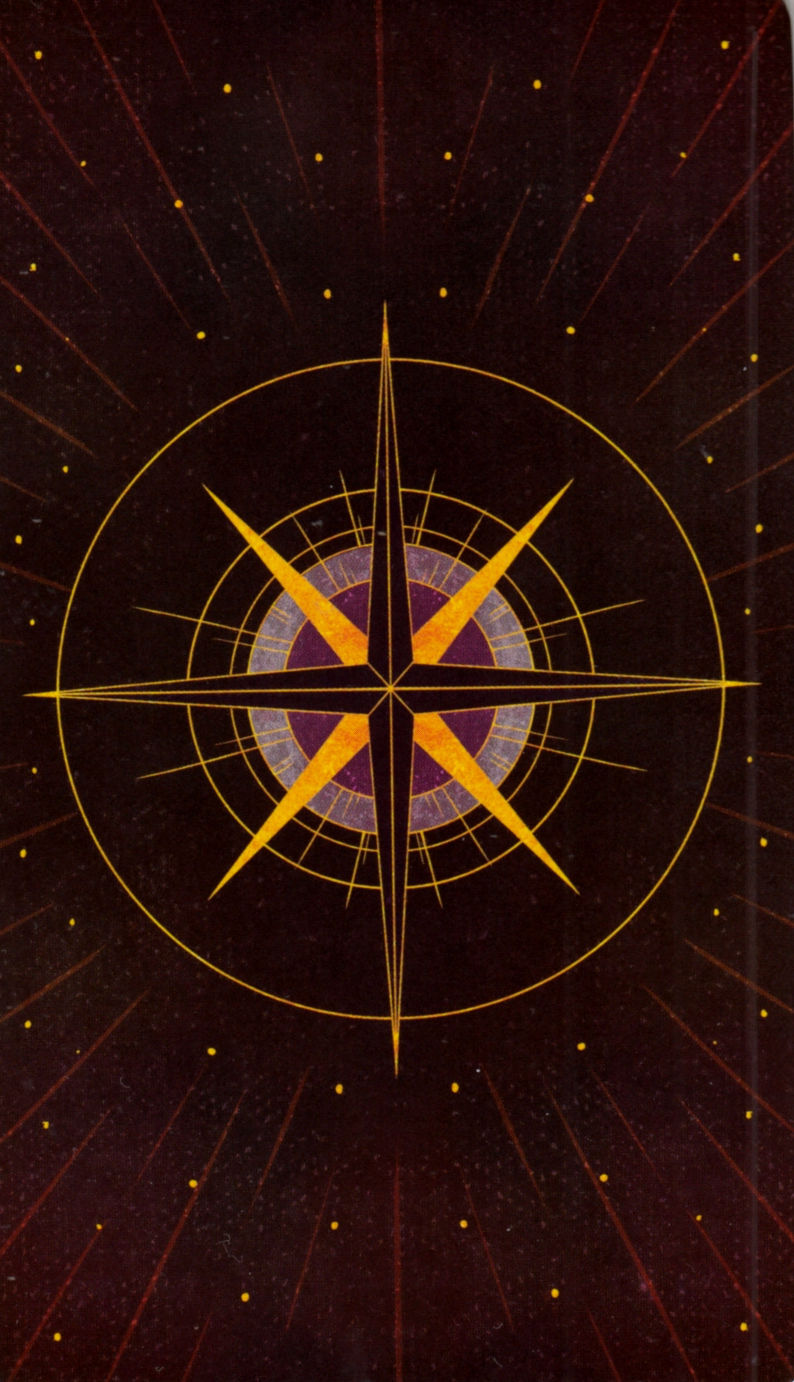…there are two different ways to measure this cosmic expansion rate, and they don’t agree. One method looks deep into the past by analyzing cosmic microwave background radiation, the faint afterglow of the Big Bang. The other studies Cepheid variable stars in nearby galaxies, whose brightness allows astronomers to map more recent expansion.
You’d expect both methods to give the same answer. Instead, they disagree—by a lot. And this mismatch is what scientists call the Hubble tension…Webb’s data agrees with Hubble’s and completely rules out measurement error as the cause of the discrepancy. It’s now harder than ever to explain away the tension as a statistical fluke. This inconsistency suggests something big might be missing from our understanding of the universe - something beyond current theories involving dark matter, dark energy, or even gravity itself. When the same universe appears to expand at different rates depending on how and where you look, it raises the possibility that our entire cosmological model may need rethinking.
The hologram explanation is looking more attractive.
This sounds interesting? Where did you read this?
For more info:
https://en.m.wikipedia.org/wiki/Holographic_principle
But this is a part of String Theory and that has quite a few issues. Still very interesting!
It’s one of the theories of the existence of the universe. At first, it was dismissed as science fantasy, but some have begun to take it seriously as it explains a lot of the unexplained. https://www.scientificamerican.com/article/is-our-universe-a-hologram-physicists-debate-famous-idea-on-its-25th-anniversary1/
We don’t even understand what caused the incomprehensibly fast rate of expansion after the Big Bang known as “cosmic inflation”, but basically JWST has confirmed that the rate of acceleration of the universe is, itself, accelerating beyond our models. Everything, everywhere since 0.01 quectoseconds1 after the Big Bang has always moved faster than we could predict, and we don’t why!
“What the results still do not explain is why the universe appears to be expanding so fast! We can predict the expansion rate of the universe by observing its baby picture, the cosmic microwave background, and then employing our best model of how it grows up over time to tell us how fast the universe should be expanding today. The fact that the present measure of the expansion rate significantly exceeds the prediction is a now decade-long problem called “The Hubble Tension.”
- Quecto, the smallest metric SI prefix, 1*10-30, is still 100x too large to measure the time between the Big Bang and Cosmic Inflation.
Maybe it’s the observer and the universe is in superposition, unfolding in every moment. Playing a little game with us as we try to win by understanding it.
Every time they call the telescope just “James Webb” I wonder why they care what a comedy special (of comedians nobody knows about) director thinks.
It’s the damn Sophons isn’t it?
I fully expect scientists of the 25th century to roll our current level of knowledge of the universe in one with flat earth and geocentrism.
I really hope they’re not stupid enough to be so judgemental or we’re gonna be in real trouble in the 25th century.
If you’re interested in this stuff, Thomas Kuhn’s The Structure of Scientific Revolutions describes a lot of how science actually happens, where most normal science builds up accumulated information under an accepted paradigm, but occasionally those old models slowly become untenable with repeated observations that are anomalous or not explained by that existing accepted scientific paradigm. Then a scientific revolution occurs, the old paradigm is cast aside or limited in its scope, while the new paradigm takes over as the generally accepted set of theories. The book is one of the most cited works of the post-war era.
GeocentrismHeliocentrism didn’t have a clear advantage overHeliocentrismgeocentrism, until Kepler made the observation that the planetary orbits were elliptical. (One big objection to geocentrism was that the stars should have some kind of observable parallax if the earth were moving around the sun, but that ended up being explained by learning just how freaking far away the stars are.) Heliocentrism with elliptical orbits, though, laid the groundwork for Newton’s theory of gravitation.Later on, Mercury’s anomalous orbit just couldn’t be made to fit Newton’s theory, but astronomers held onto Newton’s theories for decades before Einstein’s general relativity was enough to explain it. Einstein’s own cosmological theories needed to be fit in with the discovery of the cosmic background radiation and our expanding universe, and eventually we got to our current paradigm of the lambda-CDM model, which postulates the existence of dark matter to account for galactic structures, dark energy to account for the acceleration of the expansion of the universe. All along the way, there were discarded theories that just don’t hold up.
The history of how we got here can help inform how we should speculate about where we might go next. New normal science might try to figure out what dark matter actually is (different theories can be tested by looking for different observations), without actually challenging the overarching lambda-CDM model. Or research into the Hubble Tension might allow enough observation to propose a new model entirely, for a revolution into a new paradigm.
And of course, Kuhn wrote his hugely influential book in 1962, so many decades of thought have refined and challenged some of those ideas. It’s interesting stuff.
Did you mix up geocentrism and heliocentrism there?
I sure did, whoops.
I mean, the recent discoveries actually do not dispute most of the previous theories. Most of the time the old theories are fringe cases where some parameters are simplified so you get the new theory that is actually a general case of the classical one. It’s not like our old formulas stop working when we discover new cases…
But how could light pass through nothing? Surely there must exist a lumeniferous aether!
Exactly. People have been convinced of numerous “scientific” ideas over the centuries that later turned out to be totally bogus. “Dirt creates vermin”.
And maybe, in a few decades or centuries, they laugh at the notion of Dark Matter. Or what the stupid cavepeople of the 21st century still believed was gravity or speed of light.
Am I missing something or is there just no source given in this article? I would really like to be able to read more but I can’t find anything in the recent press releases from the JWST team or through a quick search. It doesn’t even say who the “researchers” are.
Also why is every other sentence bolded? It made it really hard to read.
Edit: It seems that the article is mostly taken from this 2023 NASA blog post. The raisin bread analogy is on Wikipedia.
Even if this isn’t AI slop this is a lazy article.
I was a bit confused too as I was pretty sure this was old news. Here’s a NASA article from 2023 with more information.
Yeah, fair, the NASA article is better. I’m not mad about it, though; I’d rather talk about the JWST, cosmology, and the Hubble tension than more political shit.
Is it related to this finding?
https://webbtelescope.org/contents/news-releases/2025/news-2025-116?n=\L4%40&news=true
This website is slop even if it overlaps with reality at times.
James Webb didn’t do shit. The man is dead.
…Is it unclear that “James Webb” in this context refers to the telescope by the same name? Or are you just shitposting?
He’s providing giant shoulders on which to stand.
This is really exciting stuff, tbh. It’s kinda amazing that in a world where the frontiers have been settled, most fields have had a century to a thousand years of refinement, there are still areas of science where we have giant gaps in our knowledge, like scientists first discovering gravity, or the circumference of Earth.
Someone, perhaps someone who is already alive, is going to discover new math or observations that fundamentally change how we see the universe, with far reaching implications on cosmic exploration, travel the birth and death of our universe, and (I’m sure) many commercial applications.
I went to this talk last night https://www.edinburghscience.co.uk/event/the-beauty-of-falling/ - Prof Claudia de Rham of Imperial College London spoke on the latest theories about the structure of the universe. I wish I could pass them on, but sadly my grasp was fleeting. Timey wimey stuff. Something something energetic vacuum! She has written a book: https://www.awesomebooks.com/book/9780691237480/the-beauty-of-falling
Dont start with all this. Please. There are still people out there that are adamant the earth is flat. We aren’t ready as a species, to understand the universe yet.
Come back in a few 100,000 years
Edit: Wow, sorry, this was a joke. About flat earthers. Although i can see reading it back how that can be misconstrued.
That’s like saying 1 kid in the school hadn’t learnt the alphabet, none of the other kids may progress past Peter and Jane (kid’s alphabet book series)
Hey, yeah, of course. I was joking. It wasn’t obvious. I see that reading it back.
James Webb confirmation confirms something is deeply wrong with how we write headlines.
Ick! What is this glass almanac thing? Try phys.org
Cool.
Also, what do folks use to block ads on mobile. I’ve been using FF with Ublock Origin, but lately it hasn’t been cutting it.
DNSNet, it’s a FOSS app on F-Droid, works on pretty much all apps, as it acts like a vpn but runs entirely locally.
Pi-hole on the network
And WireGuard so you’re always on that same network.
The internet is also becoming advertising hell. I go to a website to read a 400 word article or blog post and my browser will take one or two minutes to load as it tries to remove ads, cookie requests, pop-ups, redirects, videos, or any other additions … so that I can spend two minutes reading the content that I want. About 20% of the time, the site breaks or doesn’t even appear, so I skip it and move on after having spent 4 minutes wasting my time.
At least two or three times a week my wife will ask me about a website she saw on Facebook … and the site you just showed me is the type of crap that would appear.
The internet is slowly filling up with nonsense websites with psueodo information that is driving down human intelligence … all in an effort to gain a few pennies in advertising.
Set your DNS to the public adguard servers and be done.
Check which blocking lists you have. I use the same and don’t see any ads
I just use the adguard dns IP as my private dns router. I know it’s not the best way, but it works for me. No ads anywhere on my phone.
Have you tried firefox reader mode?
Adguard
FF with ublock works 100% for me. update your ublock.
You mean uBlock Origin, right?
Aye, I suppose because of the original version I should have been more clear.
uBlock Origin should be just fine. Have you messed with the settings at all? It won’t block everything straight out the box. You may need to add some filter lists and change your blocking mode.
I also use NextDNS though alongside uBlock.
I use a pihole when I’m home, and ghostery browser for link handling when I’m out. It’s incredibly basic so not great for a primary browser, but has Adblock and tracking protection, plus auto-declines cookies, so great for link handling. (I could set up a vpn but I’m incredibly lazy)
I don’t think ghostery browser is still maintained, but because it uses the same lists as their Firefox extension, it still works like a charm.
Also if you want to keep using Firefox, you can try the ghostery extension as well, assuming you are on android where that’s an option (I’m not which is why I use the browser)
Check out ReThink DNS. I’m testing it currently, has some neat features.
I use Vivaldi with configured block lists, it doesn’t block enough by default.
Brave, yes the CEO is a piece of shit and it has some suspicious crypto stuff but whatever if it keeps the company afloat. The browser itself is good, the best mobile browser I’ve used. Don’t give the company money in any way however.
To be fair, there’s always been something deeply wrong with how most people understand the universe.
To be fair, there’s always been something deeply wrong with how most people understand
the universe.FTFY
To be fair, there’s always been something deeply wrong with
howmost peopleunderstand the universe.FTFTFY :P
FTFTFY
*FT(FTFY)FY
FT(FT(FTFY)FY)FY :P
The heart of the matter, laid bare. May I call you master?
people. deeply wrong















